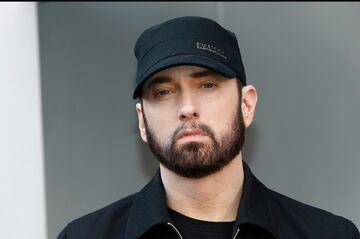In the realm of hip-hop, conflicts and aggressive lyrics have often been synonymous with the genre's competitive nature, sometimes leading to destructive outcomes within the black community.
Tragically, this competitiveness has even escalated to fatal consequences for certain artists.
The infamous clashes between rappers Tupac and Biggie serve as a stark reminder of the dark side of this gladiator-like sport.
However, J. Cole has recently taken a surprising turn by introducing a new approach – offering an apology.
During a recent performance, J. Cole made a bold move by publicly extending an olive branch to his fellow rapper and longtime comrade, Kendrick Lamar.
This unexpected gesture left many fans puzzled and questioning the future direction of hip-hop, especially considering the significant losses the industry has endured over the years.
The hip-hop community was thrown into a frenzy when Kendrick Lamar took aim at his peers, Drake and J. Cole, in his track “Like That,” featured on Future and Metro Boomin's album, “We Don't Trust You.”
Lamar's reference to the “Big 3,” including himself, Cole, and Drake, as the leading figures in mainstream rap music sparked excitement among fans.
In response, J. Cole swiftly retaliated with a surprise album titled “Might Delete Later,” culminating in a track called “7 Minute Drill” that directly addressed Lamar's provocation.
Historically, rivalries and public feuds have been commonplace in hip-hop culture, often resulting in violent confrontations.
However, J. Cole's public apology to Kendrick Lamar marked a significant departure from this norm, aiming to reconcile their differences and foster peace within the industry.
Acknowledging his misstep, J. Cole confessed during his performance at the Dreamville Festival that a part of his recent album, “Might Delete Later,” left him feeling regretful.
He candidly expressed his internal conflict, torn between adhering to the expectations of the rap game and staying true to his principles and respect for his peers.
While some may view J. Cole's apology as a deviation from the traditional rules of rap, particularly in terms of responding to disses, others see it as a courageous act that challenges the conventional notions of masculinity and competitiveness ingrained in the genre.
By choosing to prioritize peace over pride, J. Cole has sparked a debate within the hip-hop community about the significance of forgiveness and reconciliation in an industry often defined by feuds and rivalries.
Following J. Cole's unexpected apology, reactions from both fans and industry figures have been mixed.
DJ Akademiks controversially declared a new “Big 3” lineup without J. Cole, emphasizing the perceived departure from hip-hop norms.
Social media users expressed a range of emotions, from disappointment to shock, with some drawing parallels to past rap conflicts that ended tragically.
Ultimately, J. Cole's apology to Kendrick Lamar has ignited a conversation about the evolving dynamics of hip-hop culture and the role of forgiveness in an industry known for its confrontational nature.
As opinions continue to diverge on whether this gesture signifies progress or regression for the genre, one thing remains clear – the impact of J. Cole's apology reverberates far beyond the realm of music, prompting reflection on the values that underpin the hip-hop community.































